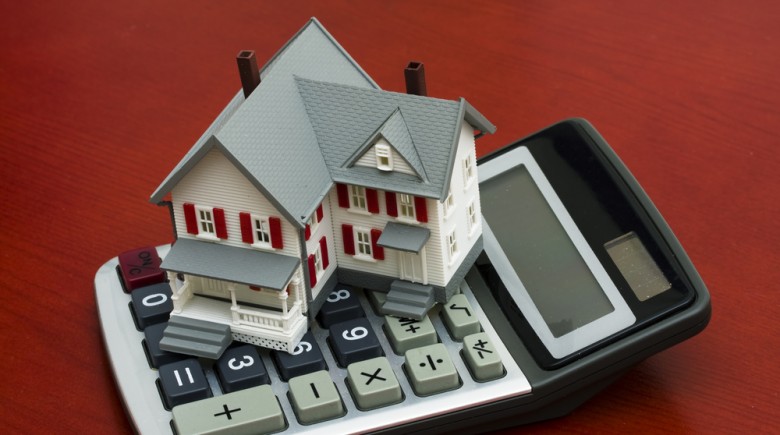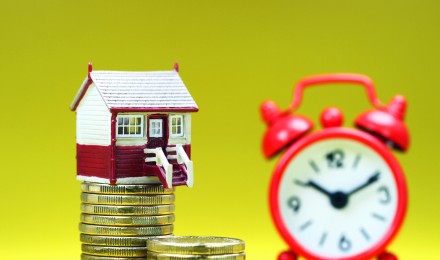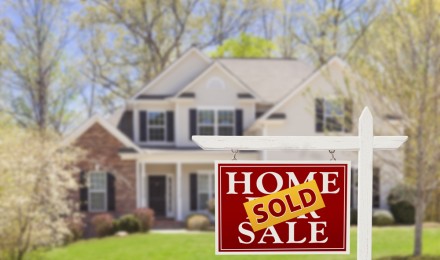You may like the idea of buying a house and having the so-called American dream, but you may not like the idea of paying off a house over 30 years. Well, there is no rule that says you have to spend the next three decades paying back the bank. If your income allows, simply give the bank more each month and pay down the mortgage faster.
There are several ways to achieve this, such as taking out a 15-year mortgage or going with a bi-weekly monthly payment that results in one extra mortgage payment each year. Both methods can get rid of your house payment sooner, which frees up cash for other purposes.
But before you jump at the opportunity to paying down your mortgage or paying off your mortgage early, consider whether this is actually the best move for your finances.
You may wonder how paying off a mortgage early could ever be a bad move. Getting rid of the loan early saves a ton in interest payments, and when you own your house free and clear, it’s easier to maintain your quality of life if you experience a job loss or other financial crisis.
However, do you have anything in savings? If so, how much?
If you have an extra $300 or $400 each month after paying your bills, putting this money toward your mortgage may seem like the best thing you can do for your finances. It’s certainly responsible and better than blowing your extra cash on clothes, vacations and electronics.
However, even if you pay more on your mortgage each month, it’ll still take years to pay off your balance. And while you’re paying off your mortgage, who’s to say that you won’t experience financial problems along the way. You’ll benefit from a paid off mortgage in the long run. But what good is a lower mortgage balance if you don’t have cash in savings to sustain a financial storm.
Of course, paying down your mortgage can mean a chunk of equity. And if you lose your job or experience other economic hardship, you may rely on the fact that you can tap into your home’s equity and borrow cash whenever you need it. But here’s the thing, if you’re not working, no bank is going to give you a loan – not even a home equity loan.
So while paying down your mortgage is an excellent goal, you shouldn’t pay down your mortgage at the expense of building a rainy day fund. Rather than apply an extra $300-$400 to your mortgage each month, put that cash in your bank account and you’ll save at least $3,000 a year. And with a high-yield savings account or a money market account, you can earn a higher return on your deposits.
According to financial experts, a satisfactory emergency fund has a minimum of three month’s income – 12 month’s of income is best. Not that you shouldn’t pay off your mortgage. But to make sure you’re covered for anything that may happen in the immediate future, you should focus your efforts of creating an emergency fund. Once you have a comfortable nest egg, you can shift your focus and begin paying down your mortgage loan.
You may like the idea of buying a house and having the so-called American dream, but you may not like the idea of paying off a house over 30 years. Well, there is no rule that says you have to spend the next three decades paying back the bank. If your income allows, simply give the bank more each month and pay down the mortgage faster.
There are several ways to achieve this, such as taking out a 15-year mortgage or going with a bi-weekly monthly payment that results in one extra mortgage payment each year. Both methods can get rid of your house payment sooner, which frees up cash for other purposes.
But before you jump at the opportunity to paying down your mortgage or paying off your mortgage early, consider whether this is actually the best move for your finances.
You may wonder how paying off a mortgage early could ever be a bad move. Getting rid of the loan early saves a ton in interest payments, and when you own your house free and clear, it’s easier to maintain your quality of life if you experience a job loss or other financial crisis.
However, do you have anything in savings? If so, how much?
If you have an extra $300 or $400 each month after paying your bills, putting this money toward your mortgage may seem like the best thing you can do for your finances. It’s certainly responsible and better than blowing your extra cash on clothes, vacations and electronics.
However, even if you pay more on your mortgage each month, it’ll still take years to pay off your balance. And while you’re paying off your mortgage, who’s to say that you won’t experience financial problems along the way. You’ll benefit from a paid off mortgage in the long run. But what good is a lower mortgage balance if you don’t have cash in savings to sustain a financial storm.
Of course, paying down your mortgage can mean a chunk of equity. And if you lose your job or experience other economic hardship, you may rely on the fact that you can tap into your home’s equity and borrow cash whenever you need it. But here’s the thing, if you’re not working, no bank is going to give you a loan – not even a home equity loan.
So while paying down your mortgage is an excellent goal, you shouldn’t pay down your mortgage at the expense of building a rainy day fund. Rather than apply an extra $300-$400 to your mortgage each month, put that cash in your bank account and you’ll save at least $3,000 a year. And with a high-yield savings account or a money market account, you can earn a higher return on your deposits.
According to financial experts, a satisfactory emergency fund has a minimum of three month’s income – 12 month’s of income is best. Not that you shouldn’t pay off your mortgage. But to make sure you’re covered for anything that may happen in the immediate future, you should focus your efforts of creating an emergency fund. Once you have a comfortable nest egg, you can shift your focus and begin paying down your mortgage loan.







